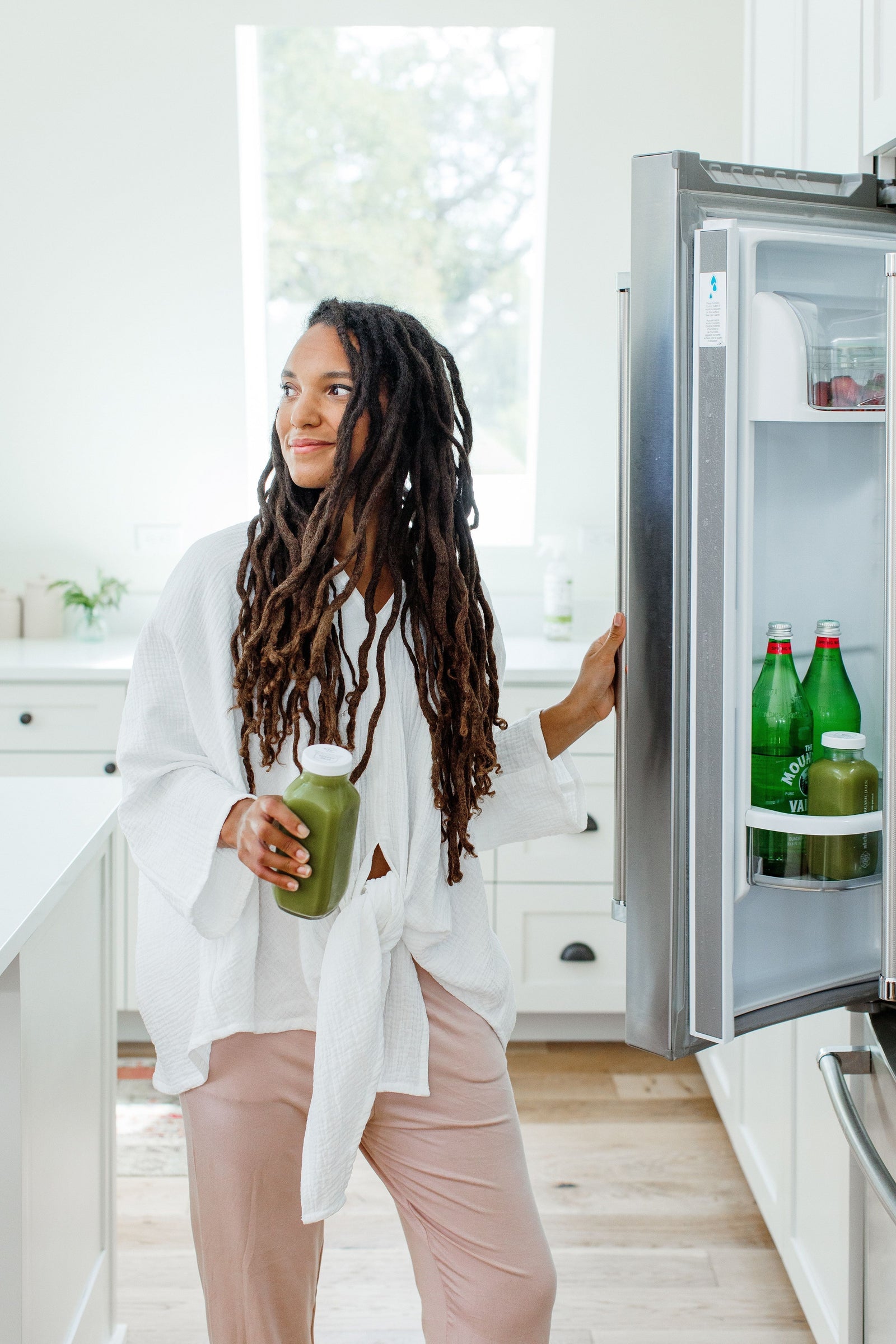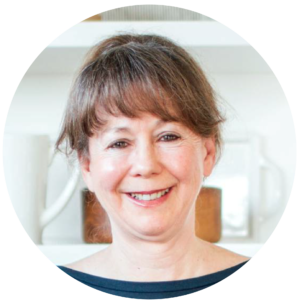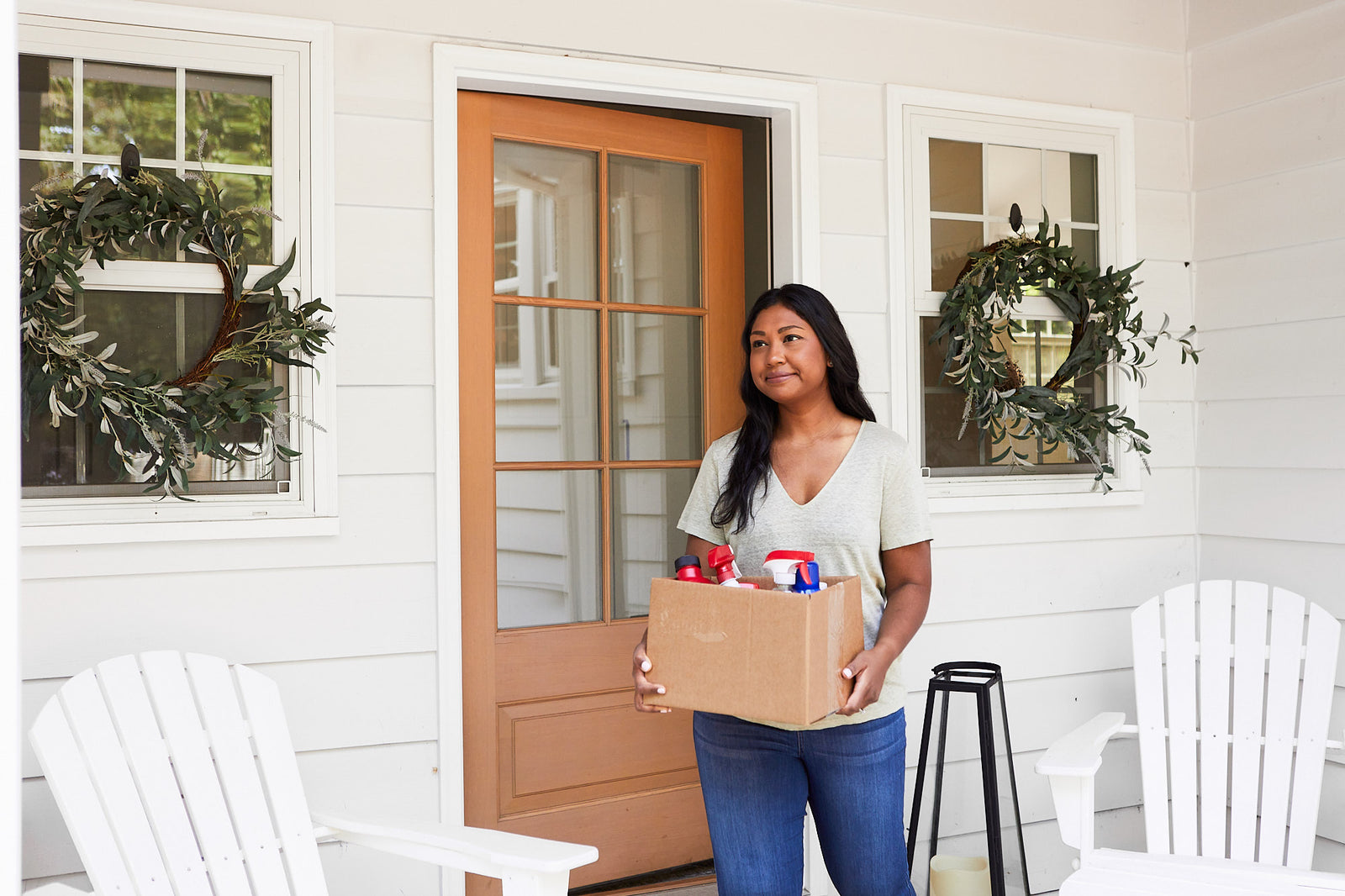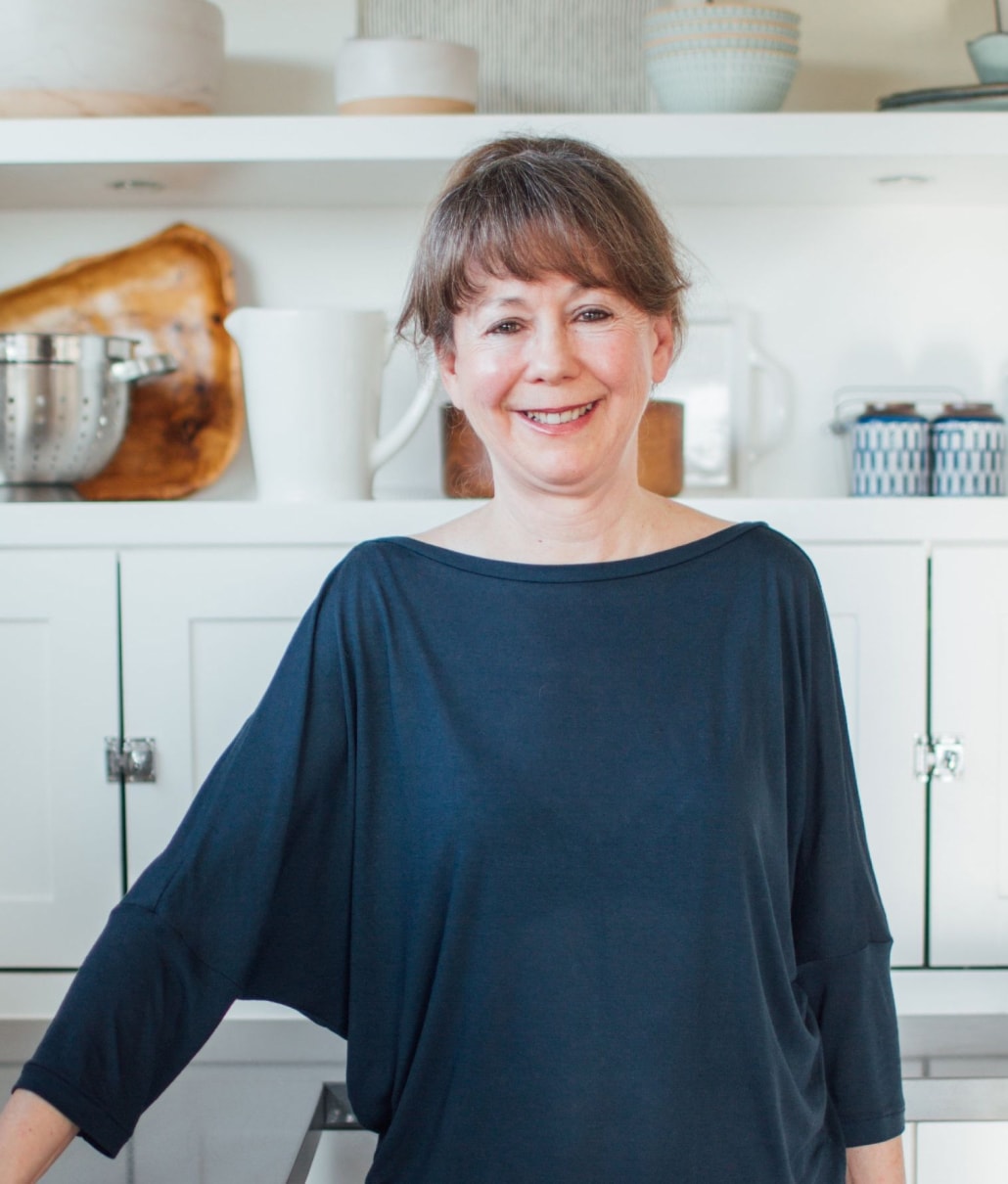Transition to Non-Toxic Living: 8 Tips for a Healthier Home

Dipping your toes into non-toxic living for the first time can be overwhelming, but it's an exciting opportunity to change your life!
Where do you start? How can you make sure you’re doing it correctly?
There isn’t a one-size-fits-all approach to transitioning to a non-toxic lifestyle. We all have our own health issues, routines, habits, and favorite products that make up our everyday lives.
Something that is tough for one person to give up (e.g. fast food or scented candles) could be easy for another.
Use these 8 easy tips to detox your home, form lasting habits, and reduce stress while making cleaner choices.
1. Focus on one category at a time to ease the transition
Focusing on cleaning up one area of your life at a time is the best way to make sure you don’t overwhelm yourself.
We have step-by-step categories on our Toss The Toxins page to help you toss toxic products by category, and many blog posts in our Wellness Center to help you swap out toxic products with clean, healthy ones.
We do recommend that pesticides, toxic laundry, and cleaning products be the first few groups of products you remove from the home. After that, it is really up to you to choose which area works best for you.
For example, those with endocrine disruption may want to eliminate fragranced products after they have removed their pesticides, laundry, and cleaning products. Each individual step taken makes a difference!
Most important, it’s all about making sure you have thoroughly removed all products in a category before moving to the next.
For example, that one bottle of cleaner under the bathroom sink responsible for your child’s asthma, if not removed, will continue to undermine health.
Overall, these things take time and energy. Give yourself time to adapt to your new “normal” and then move on to the next.
Related read: 21 Unique Ways to Use Branch Basics
2. Consistency is key
It’s all about consistency. When you take this transition slowly, you’re able to give yourself time to adapt to your new normal, which makes you more likely to stick with it.
Things in your life might look and feel a bit different for a while, but you will adjust!
For example, switching to non-toxic deodorant comes with being just a little bit smelly for a week or two while your body detoxes from conventional deodorant.
Commit to committing, and you’ll stay on track!
3. Choose low-resistance swaps
Make it easy on yourself if you have people in your life who may object to removing certain toxic products.
Keep quiet, don’t make an issue of removing these products, and continue to remove the other categories that they will not even notice or care about missing.
As you learn, you'll be ready to open their mind to trying some new products when the time is right!
4. Build new habits
Making healthy changes that stick involves creating new habits. However, one unique aspect of eliminating harmful products from the home is that once they are out, it's over! It doesn’t have to be repeated.
However, tossing toxins in the kitchen requires a bit more repeated effort and thought. Try habit stacking - a form of implementation intention that lets you piggy back new habits on old habits.
It works by taking advantage of the strong neural networks your brain builds around existing habits or established skills. Instead of going through the time, effort and brain-training required to create a neural pathway that supports a new habit, you simply tack on your desired new habit to an established one.
For example, after you clean the kitchen each evening, soak any beans, grains, or seeds you might need for tomorrow’s food preparation. Before bed, check your water filter and fill it up if needed.
Want to practice grounding each day? Take the first few sips of your routine morning coffee outside barefoot, versus in your desk chair.
5. Try the buddy system for accountability
There’s a reason the buddy system is talked about in the fitness world… accountability works!
Do you have a friend or family member who has been interested in healthy living? Ask them if they want to be accountability buddies during your transition.
Even if you don’t both follow the exact same steps, talking through changes with someone else can relieve stress and feelings of isolation that may come up.
6. Educate yourself and advocate for safer products
You don’t have to have a scientific background to read labels, evaluate ingredients and find answers these days.
In fact, you can vet products very quickly and feel confident about your decisions with some great tools that are right at our fingertips!
EWG Skin Deep is a great place to vet skin, beauty and personal care products.
-
We recommend that products kept in the home should have all ingredients rated a 1 or 2 on EWG Skin Deep (with some exceptions*). The ingredients are rated 1-10, with 1 being the safest to 10 being the most toxic. Toss all products with any ingredient rated 3 or more. Hint: To save time, start with the last ingredient on the list.
- * Exceptions - Know that at this time, products such as toothpaste and makeups will be hard to find with all ingredients rated a 1-2. Exceptions have to be made until better products are discovered or introduced into the market.
- Note: People trying to heal inflammatory skin conditions, hormone disruption, or chronic illness should also avoid products used on the skin with the following ingredients that can be inflammatory (citric acid, sodium coco sulfate, sodium benzoate, potassium sorbate, phenoxyethanol, and any ingredient with a quaternary ammonium component like polyquarternium - 11) even though they are rated a 1 or 2 on EWG Skin Deep.
Think Dirty is a great app that easily rates products just by scanning their bar codes.
These are just a few tools you can use, but there’s much more you can do to be your own advocate. Read our blog post 3 Tools You Need To Become Your Own Product Advocate to dig in more!
7. Keep an open mind during this transition
You’ll be taking in a TON of new information during this transition, and some of it may seem a bit frightening, unconventional or just plain odd at first.
You’ll expand your mind which can feel uncomfortable at times. This can be tough!
Referring back to tip #5, when you are learning and educating yourself, you get to decide for yourself what the information means to you and what you want to do with it.
Related: Are Natural Cleaning Products Effective?
8. Be kind to yourself
Make sure to focus on the good things that are coming out of your transition, and not on all things you miss. Remember, when you make the switch to non-toxic living, you're doing right by your own body, those you surround yourself with, and the earth.
Here’s the thing: Non-toxic, healthy living won’t do you any good if your mind is constantly stressed, anxious, worried or overwhelmed.
Stress is an emotional toxin, and we believe your mind, body and spirit all needs to be healthy to reap the real benefits.
We hope these tips will get you well on your way. We believe you have to live your life (and enjoy it) and give yourself grace. That’s just being human! There will always be situations and environments you cannot control, and in the end, you can only control yourself and your own home.
Make the switch to non-toxic living
Making the switch to a non-toxic lifestyle is one of the most powerful things you can do for your health, your family, and the planet.
Looking for more clean living tips, product swaps, and encouragement along the way?
Follow us on Instagram and check out our Wellness Center for more resources to support your journey.
Non-Toxic Living FAQs
What is non-toxic living?
Non-toxic living means choosing products and habits that avoid harmful chemicals in order to support your health and the environment.
How do I start transitioning to non-toxic living?
Start by replacing the most toxic products first—like conventional cleaners and pesticides—then move through the rest of your home one category at a time.
Are non-toxic products really better for you?
Many conventional products contain endocrine disruptors, allergens, and carcinogens. Non-toxic alternatives reduce exposure to these harmful ingredients.
Categories

Marilee Nelson
Marilee Nelson is an Environmental Toxins expert who has spent nearly 30 years advocating for the chemically-sensitive and chronically-ill. She is a Board Certified Nutritionist, Certified Bau-Biologist and Bau-Biology Inspector and specializes in Food As Medicine. She has helped thousands of families and individuals identify, heal and recover from toxic exposures and is on a mission to revolutionize the way American families view their health.







